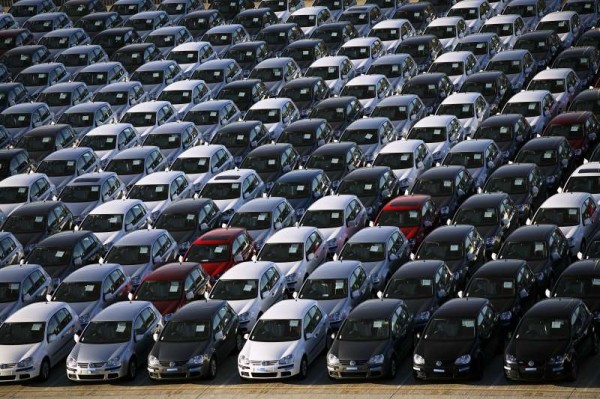What both USA and Japan seem to miss about electric cars
It’s something big. Potentially very big.

I am a big fan of electric cars, if built in the right way and… “managed” as I will tell you in a moment. But there is something that, let’s say, i do not understand about certain plans and discourses about them.
Japan, for example, is holding back on electric cars because it has invested so much money in selling gasoline-electric hybrid cars that it wants to leverage that investment, and protect all the related jobs, for as long as possible.
That is understandable. So are the concerns that holding back “leaves the country’s most important industry at risk of missing a transformative moment” because, says a Japanese expert, “in 10 years if we lose the opportunity to move to the electric vehicles field, we may lose”. In other words, the concern is timing, not know-how or capacity. When asked “Can [Japan carmakers] make a mass-market vehicle. Can [they] break even?" he answered “yes”.
Meanwhile, on the other side of the ocean…
The USA need several things to happen before their power grid is able to charge all those electric cars, including:
- Generate More Electricity
- Juggle Those Charging Times
The first thing is necessary because “If every American switched over to an electric passenger vehicle… the United States could end up using roughly 25 percent more electricity than it does today”.
The “juggling” must be enforced because, if all those Americans charged their cars in the same hours, e.g. at night, endless blackouts would ensue. Therefore, utilities should “stimulate” people to not do that, either by offering “drastically cheaper rates” for charging up outside peak hours, or “taking control of chargers themselves”. The latter option means, as the NYT puts it, that vehicle owners would “plug in their car and specify when they will next need to use it, and the utility charges up the battery when electricity is cheapest and most plentiful”.
Here is what I don’t understand
The last plan mentioned above amounts to let somebody, who needs much more than you to keep your lawmakers happy, to:
- know (that is, be able to tell others) when you will next need to move, and
- not charge your car, if the police, banks or insurance companies say so
But never mind minor issues like these, let’s stay on topic.
All the discourses and plans mentioned above lay on the same, highly questionable dogma, that is hidden in plain sight in these two sentences:
- “Can you make a mass-market vehicle. Can you break even?”
- “If every American switched over to an electric passenger vehicle…”
Everybody, that is, gives for granted as if it were a law of physics that mass private ownership of cars will continue to be both wanted, and physically possible, for decades. This, in a planet already obese with too much human products, but above all without enough space and raw materials to make cars for everybody, whatever energy they use.
Bah. If I were you, I’d buy stocks only of carmakers with a positive, but convincing answer to this question:
“Can you… break even while making much less cars per year than today?”
Image source: one of the many articles appeared these years about how people around the world, especially youngsters, are “driving less, less interested in owning cars, and even less likely to bother getting driver’s licenses”
Who writes this, why, and how to help
I am Marco Fioretti, tech writer and aspiring polymath doing human-digital research and popularization.
I do it because YOUR civil rights and the quality of YOUR life depend every year more on how software is used AROUND you.
To this end, I have already shared more than a million words on this blog, without any paywall or user tracking, and am sharing the next million through a newsletter, also without any paywall.
The more direct support I get, the more I can continue to inform for free parents, teachers, decision makers, and everybody else who should know more stuff like this. You can support me with paid subscriptions to my newsletter, donations via PayPal (mfioretti@nexaima.net) or LiberaPay, or in any of the other ways listed here.THANKS for your support!